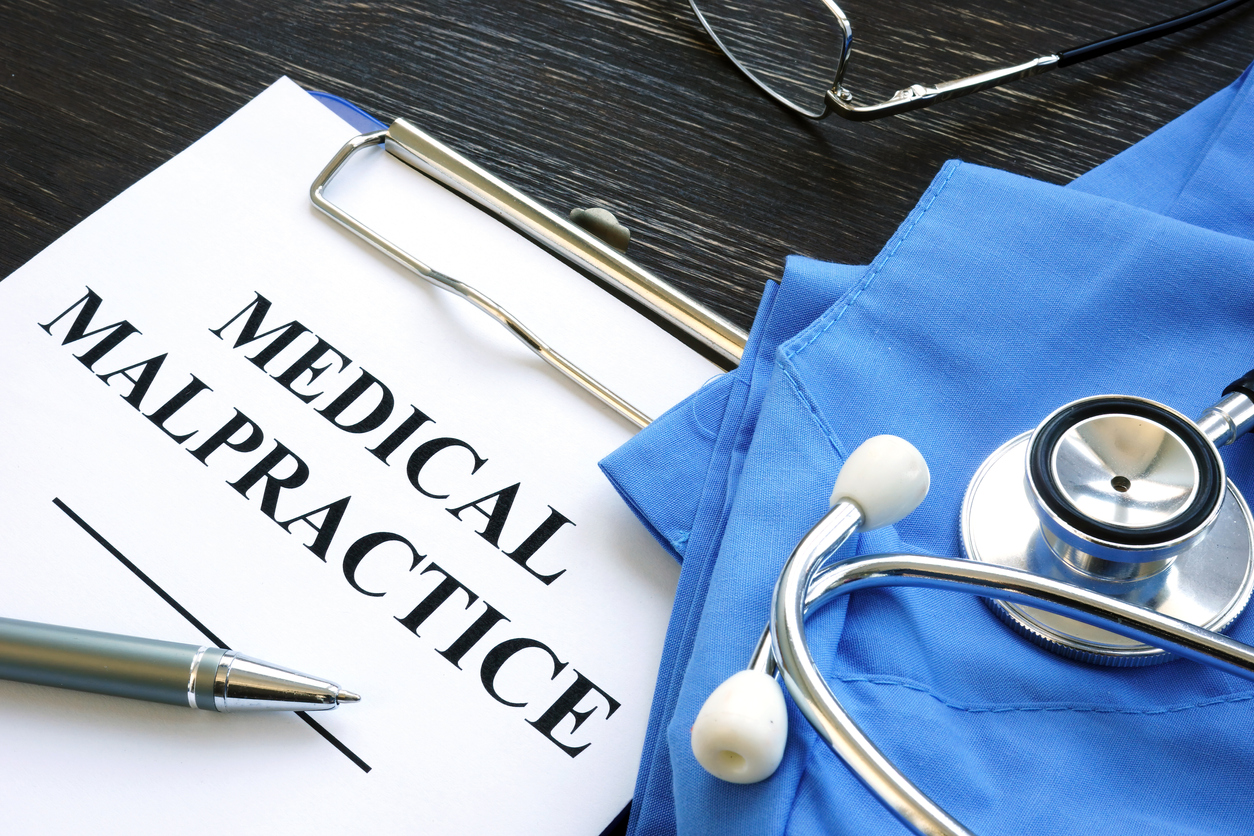Ryan Bradley | May 29, 2021 | Medical Malpractice

When you go to the doctor or the hospital for a health condition, you expect the medical professionals to help you. You expect them to provide reliable medical services that improve your health. Sadly, hundreds of thousands of patients are injured each year due to medical errors.
Medical Errors Result in Hundreds of Thousands of Deaths Each Year
A John Hopkins study concluded that medical errors are the third leading cause of death in the United States. Studies have estimated that up to 200,000 deaths each year are the result of medical errors. A recent study placed the annual number of deaths caused by medical errors at 440,000.
In some cases, a medical error may go undetected because it does not cause serious harm to the patient. However, those are the lucky patients.
Common Medical Errors Committed by Physicians, Medical Staff, and Medical Facilities
A medical error can be committed by anyone involved in the patient’s care. Medical mistakes occur in all health care settings, from hospitals and doctors’ offices to nursing homes and rehabilitation facilities.
There are many different types of medical errors; five of the most common errors are:
1. Medication Errors
Medication errors are very common. These happen when medical professionals give the wrong dosage or incorrect medication to hospital or nursing home patients. Doctors, nurses, and pharmacists can all be guilty of this error.
Receiving the wrong medication can result in severe complications or death.
2. Surgical Errors
Surgical errors are also very common medical errors. In surgical errors, surgeons operate on the wrong site or the wrong patient. They may leave instruments inside the patient or fail to monitor a patient during and after surgery.
In some cases, a surgeon fails to obtain informed consent or does not review the patient’s risk factors for a procedure.
3. Diagnostic Errors
Diagnostic errors may include a variety of mistakes that lead to a misdiagnosis or delayed diagnosis.
Reasons for failing to diagnose a patient’s condition correctly include, but are not limited to:
- Failing to note the patient’s symptoms or review the patient’s medical history
- Failure to order diagnostic tests
- Mistakes made when reading or interpreting the results of a diagnostic test
- Errors in communication
- Use of defective or malfunctioning equipment
- Mistakes made in the lab with samples, including contamination of samples and using another patient’s samples or readings
The results of a failure to diagnose can be catastrophic. The patient may receive incorrect medication and care, which could result in complications. At the very least, the patient’s condition may worsen, which could lead to permanent impairments or death.
4. Infections
Hospital-acquired infections can be deadly. Here, doctors and staff members fail to adequately monitor for post-operative infections or signs of hospital-acquired infection.
In some cases, a patient may develop an infection because of inadequate cleaning and sanitizing procedures. They may also acquire the infection from a staff member, visitor, or another patient.
In extreme cases, the patient may develop sepsis and die. If the patient survives, they could have permanent impairments and disabilities.
5. Birth Errors
Medical errors made during labor and delivery can result in the death of the mother or the baby. Birth injuries may cause permanent disabilities for the baby. Medical errors that cause birth injuries include failing to monitor the mother and baby, perform a timely C-section, request a specialist, and perform a risk assessment.
What Causes Medical Errors?
In most cases, medical errors are the result of human error and negligence. They are preventable had the medical provider acted with reasonable care.
For example, a doctor wants to get out of the office, so he rushes through his last appointment. The doctor does not pay close attention to the patient’s complaints and sends the person home with a prescription.
However, the prescription is not the correct medication for the patient’s condition. The patient suffers irreparable harm because of the doctor’s negligence.
Another example is a doctor treating a patient while he is under the influence of alcohol or drugs. Or, a doctor may operate on a patient or treat a patient when the doctor is too exhausted and drowsy to function.
The causes of medical errors are many. However, the results of medical errors are often the same: wrongful death, severe pain, disabilities, and other unnecessary sufferings by patients who trusted the doctors to provide care.
Patients and their families can file medical malpractice lawsuits seeking compensation for their damages and injuries. However, the Missouri statute of limitations limits your time to file a medical malpractice lawsuit. Therefore, to avoid losing your right to pursue legal action, talk with a personal injury attorney as soon as possible about your situation.
Contact Our Medical Malpractice Law Firm For Help Today
For more information, please contact Bradley Law Personal Injury Lawyers at your nearest location to schedule a free case evaluation today.
St. Louis Office
1430 Washington Ave Suite #226 St. Louis, MO 63103
(314) 400-0000
Kansas City Office
1509 NE Parvin Rd, Suite A., Kansas City, MO 64116
(816) 408-3448
Or if you would prefer to reach out to us online, please visit our contact us page.

